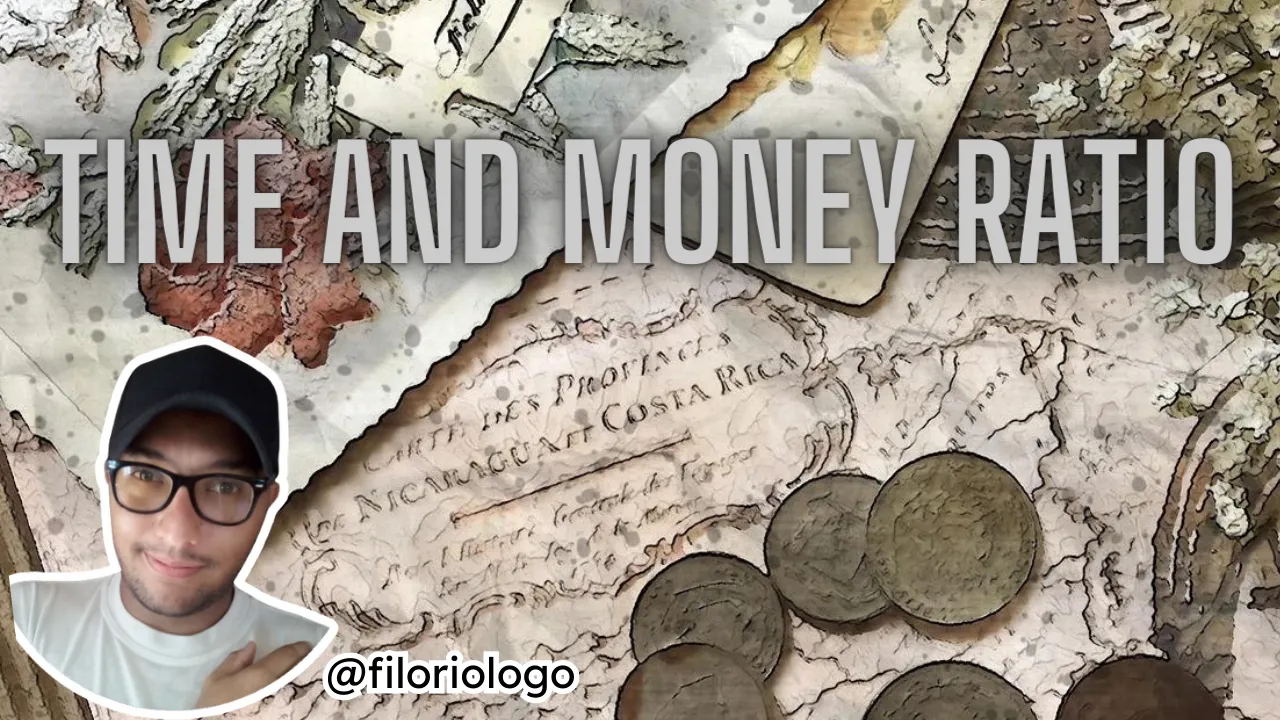
Cover: Canva
Source: Pixabay
Relación tiempo y dinero
Hoy por la mañana salimos a trotar y mientras trotaba vinieron varias ideas a mi mente. Una de las ideas que más resonó fue la relación que hay entre tiempo y dinero. En esta época de hiper-productividad movido por un sistema que premia e incentiva la producción el tiempo es vital. Realmente, el tiempo es vital, pero, no por el hecho que se relacione intrínsecamente con la posibilidad de producir, sino porque el tiempo, en sentido estricto es lo único que tenemos, y no a plenitud ya que somos finitos, en algún momento perecemos.
Ahora bien, las jornadas laborales son la disposición de tiempo para producir algún bien o servicio, o realizar determinada tarea que tendrá una relación monetaria, en sí, el dinero es una unidad de medida. Una hora de trabajo tiene un equivalente en dinero, será más o menos dinero por hora dependiendo de muchos factores que por ahora no vienen al caso.
ENGLISH VERSION (click here!)
This morning we went out for a run and while I was running several ideas came to my mind. One of the ideas that resonated the most was the relationship between time and money. In this era of hyper-productivity driven by a system that rewards and encourages production, time is vital. Really, time is vital, but not because it is intrinsically related to the possibility of producing, but because time, in a strict sense, is all we have, and not in full because we are finite, at some point we perish.
Now, working hours are the disposition of time to produce a good or service, or to perform a certain task that will have a monetary relationship, in itself, money is a unit of measure. An hour of work has an equivalent in money, it will be more or less money per hour depending on many factors that are not relevant at the moment.
Antes de seguir, quiero dejar en claro que no estoy diciendo que sea una relación de canje justa o injusta, es el modos en el cual se han dado las cosas, y a partir de esta realidad convenida partamos a pensar un poco en la relación tiempo-dinero.
Si las horas tienen una relación monetaria, quiere decir, que cada persona estará dispuesta o no en canjear lo que sabe o lo que hace, por un monto en cierta cantidad de tiempo. Eso me hace pensar en las largas jornadas laborales que muchas personas están dispuestas a cumplir por el hecho de ganar más dinero.
Durante años trabajé de bartender y mesero, y muchas veces cumplía horarios dobles por mas dinero, o simplemente de los dos días libres que estipula la ley laboral de mi país, solo accedía a un día libre con el fin de trabajar un día más y al final de la semana tener un poco más de dinero en mi cuenta bancaria.
ENGLISH VERSION (click here!)
Before continuing, I want to make it clear that I am not saying that it is a fair or unfair exchange relationship, it is the way in which things have been given, and from this agreed reality let's think a little about the time-money relationship.
If hours have a monetary relationship, that is, each person will be willing or not to exchange what they know or what they do, for an amount in a certain amount of time. That makes me think of the long working hours that many people are willing to comply with in order to earn more money.
For years I worked as a bartender and waiter, and many times I fulfilled double schedules for more money, or simply from the two days off that the labor law of my country stipulates, I only had one day off in order to work one more day and at the end of the week have a little more money in my bank account.
¿Qué hay del tiempo libre?
Si el tiempo es dinero, el tiempo libre sería sinónimo de perdida, de no-dinero. Cuando pensaba en esto, venían a mi ideas tales como. puedes medir tu prosperidad monetaria en función del tiempo libre que puedes brindarte. ¿A mayor tiempo libre mayor riqueza? No sé si sea licito pensar de este modo, pero, no todas las personas podrían costearse vacaciones por largas temporadas.
El ocio es benéfico para la salud mental y física, hacer deporte, entrenar, meditar, pasear en fin, lo que sea que pueda ser no productivo, pero mantenernos ocupados con un propósito también nos mantiene mentalmente activos. Es por ello que considero la búsqueda de un equilibrio sería lo más prudente. Pero, es un equilibrio que muchos no podrán darse la oportunidad.
ENGLISH VERSION (click here!)
What about free time?
If time is money, free time would be synonymous with loss, with no-money. When I thought about this, ideas such as came to me. you can measure your monetary prosperity in terms of the free time you can afford yourself. The more free time, the more wealth? I don't know if it's legitimate to think this way, but not everyone could afford vacations for long periods of time.
Leisure is beneficial for mental and physical health, playing sports, training, meditating, walking in short, whatever it may be that can be unproductive, but keeping us busy with a purpose also keeps us mentally active. That is why I consider the search for balance would be the most prudent. But it is a balance that many will not be able to afford.
También venia a mi mente el asunto del retiro, trabajar por varios años con cierto ahínco con el propósito de retirarse un poco antes parece la meta de muchos, o quizá intentar buscar modelos de negocio que le permitan vivir un retiro tranquilo parece una meta justa. A veces veo a personas cercanas trabajando aun en la vejez por que no planificaron su retiro, o quizá no tuvieron las condiciones de posibilidad para planificarlo y eso me cuestiona mucho. Mis padres en pocos años estarán cruzando el umbral de la tercera edad y no me gustaría verlos seguir trabajando, es por ello que una de mis metas en la vida es poder sostenerlos en ese momento de su vida, que envejezcan con dignidad y sin preocupaciones es uno de mis sueños y motivación en la vida.
Volviendo al asunto del tiempo y el dinero, el retiro implica un tiempo que no se puede asociar con el dinero, muchas veces hemos escuchado la trillada frase "El tiempo es oro" y no, no creo que sea la manera mas licita de definir el tiempo.
Como lo dijo Kant, el tiempo es una condición de posibilidad, disponer de tiempo es tener la posibilidad de canjearlo por dinero, o por ocio, el tiempo es una unidad de medida bastante curiosa. Ahora bien, seguro que leyendo estas líneas has pensado en el film "In Time" una mirada filosofía sobre el tiempo que vale la pena mirar.
Y tú ¿piensas que el tiempo es dinero?
ENGLISH VERSION (click here!)
I was also thinking about the issue of retirement, working for several years with a certain diligence in order to retire a little earlier seems to be the goal of many, or perhaps trying to find business models that allow them to live a quiet retirement seems like a fair goal. Sometimes I see people close to me working even in old age because they did not plan their retirement, or perhaps they did not have the conditions of possibility to plan it and that questions me a lot. My parents will be crossing the threshold of old age in a few years and I would not like to see them continue working, that is why one of my goals in life is to be able to support them at that time of their life, that they age with dignity and without worries is one of my dreams and motivation in life.
Returning to the issue of time and money, retirement implies a time that cannot be associated with money, we have often heard the trite phrase "Time is money" and no, I do not think it is the most legitimate way to define time.
As Kant said, time is a condition of possibility, having time is having the possibility of exchanging it for money, or for leisure, time is a quite curious unit of measure. Now, surely by reading these lines you have thought about the film "In Time" a philosophical look at time that is worth watching.
And you, do you think time is money?
Translated and formatted with Hive Translator by @noakmilo.
